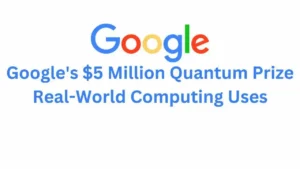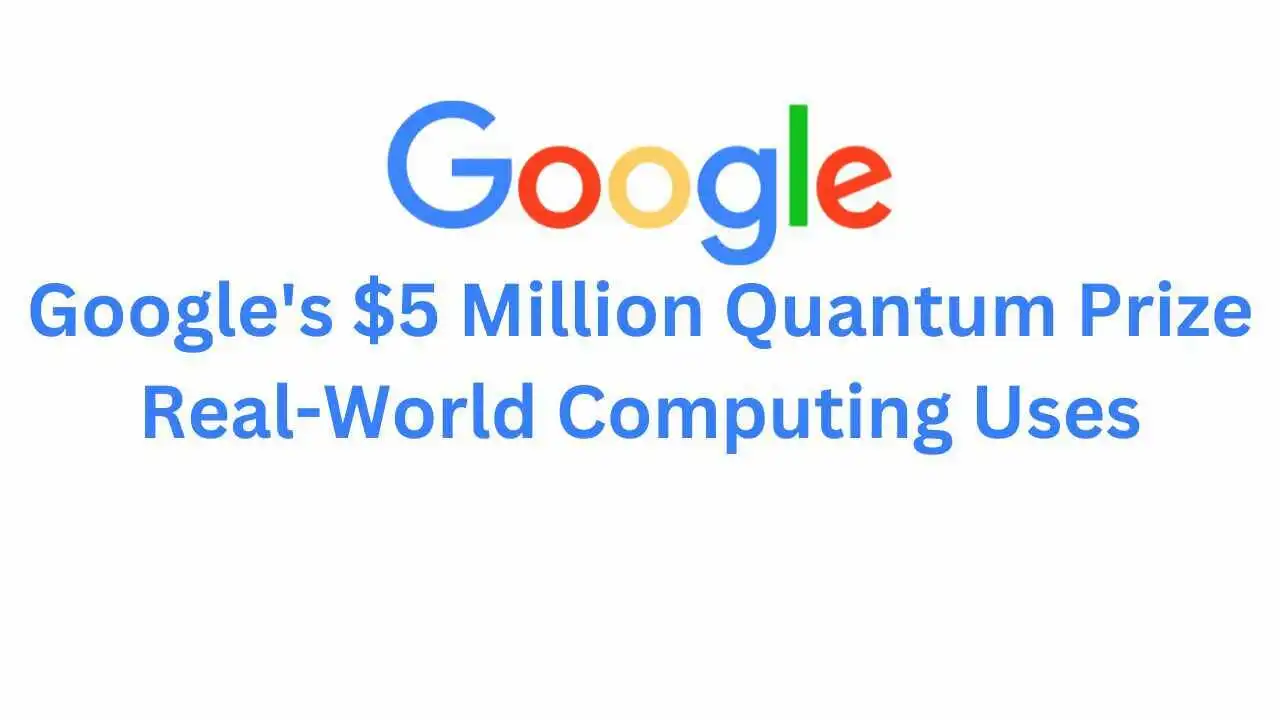For Regular Latest Updates Please Follow Us On Our WhatsApp Channel Click Here
Last updated on October 7th, 2024 at 02:25 am
Google $5 Million Quantum Prize For Finding Real-World Quantum Computing Practical Uses
Why Explore Practical Applications of Quantum Computing?
Classical computers have changed our lives, but struggle with complex problems that involve lots of data or detailed simulations continues. That is where quantum computing enters the scenario.
For Regular Latest Updates Please Follow Us On Our WhatsApp Channel Click Here
Quantum computers use quantum mechanics to do calculations much faster than regular computers. They work at the atomic and subatomic levels, making them faster than classical computers for some tasks. This phenomenon, known as quantum advantage, holds immense promise for tackling numerous challenges across diverse fields.

Understanding the Google $5 Million Quantum Prize
The XPRIZE Quantum Applications competition links theory with real-world use by closing the gap between potential and application. The winners divide the $5 million prize money among themselves. The winning team gets $3 million.
The runner-ups share $1 million. Each of the 20 semi-finalists receives a $50,000 award. This tiered structure encourages diverse participation and fosters innovation across various stages of development.
However, the true value of the competition transcends the monetary rewards. The fundamental objective lies in addressing real-world problems aligned with the United Nations Sustainable Development Goals (SDGs). These goals encompass crucial areas like poverty eradication, climate change mitigation, and ensuring access to quality education and healthcare. The competition aims to use quantum computing research for good, pushing boundaries to make a positive impact on society.
Exploring the Power of Quantum Computing
So, what kind of problems can quantum computers potentially solve? Compared to classical computers, quantum computers excel at tasks involving:
Simulating complex systems: This includes modeling molecules for drug discovery, materials science research, and weather forecasting with unprecedented accuracy.
Optimization problems: Quantum algorithms can efficiently solve complex optimization problems, making them invaluable in areas like logistics, financial modeling, and resource allocation.
Better computers can break traditional encryption, but quantum cryptography is more secure because of quantum mechanics.
As quantum computing improves, there will be more ways to use it in the future, beyond just these few examples.
The Role of Diplomacy and Collaboration
The XPRIZE Quantum Applications initiative extends beyond simply offering financial rewards. The collaboration with GESDA highlights the crucial role of global cooperation and diplomacy in advancing quantum computing research.
Collaboration internationally among experts from various backgrounds is important. This collaboration helps to accelerate progress and ensure that people worldwide can benefit from the technology. Working together across borders is crucial for advancing technology and making it accessible to all.
Collaboration among experts from different fields is essential for speeding up progress and ensuring global access to the technology. Governments, research institutions, and businesses can work together to make rules, share resources, and encourage responsible use of technology.
XPRIZE Quantum Applications: Driving Innovation
The XPRIZE Quantum Applications competition serves as a catalyst for innovation in quantum computing. The competition motivates researchers, startups, and companies to develop helpful solutions. It does this by providing a large prize and emphasizing practical applications. This speeds up research and development and encourages collaboration and innovation in the quantum computing community.
Conclusion
Quantum computing holds the potential to revolutionize various fields and address some of humanity’s most pressing challenges. The XPRIZE Quantum Applications initiative provides a $5 million prize. It focuses on the practical uses of quantum technology.
This initiative aims to unleash the power of this groundbreaking technology. Collaboration and diplomacy ensure that the competition develops quantum computing responsibly and ethically. This will have a positive impact on people around the world and contribute to a better future for all. This will benefit people worldwide and lead to a better future for everyone.
For Regular Latest Updates Please Follow Us On Our WhatsApp Channel Click Here
